
Developer: Arrowiz
Publisher: Giiku Games, Bilibili
Platform: Switch, PS4, PC, Xbox One
Tested on: Switch
Hermitage: Strange Case Files – Review
Before you dive into our review of Hermitage: Strange Case Files, do yourself a favor and watch the game’s trailer. It does an excellent job of capturing the atmosphere of the game without revealing too much, and that’s a good thing because this is a game that works best if you know as little as possible about it beforehand. If you want our unbiased opinion of this mystery game/visual novel hybrid, read on; but if the trailer (or the free Steam demo) piques your interest, then going in blind is the recommended way. Should you prefer to know what you’re getting into before you open your wallet -and we can’t blame you either way- then we’re more than happy to tell you what you need to know about Hermitage: Strange Case Files.
Story
Disclaimer: Before we delve into Hermitage’s story, we feel obliged to give you a fair warning; there are a handful of spoilers ahead. We’ll try not to give away too much but given the way the story is structured, it’s impossible to fully explain the game’s premise without mentioning one or two surprise elements.
In Hermitage: Strange Case Files, we travel back to 2017 to follow the enigmatic -and unnamed- store manager of Hermitage, a second-hand book store located in China. The store offers a wide selection of occult literature. When Cecile, a young schoolgirl, comes into the store seeking a book that contains answers about dreams she’s having, a chain of events is set in motion. Soon enough, the store manager finds himself in a position where he’ll have to prevent otherworldly beings from destroying the world. A strange drug, called Lilac Grass, is used by Cecile and others. Seemingly harmless at first, it lets users travel through time and see unspeakable horrors from other dimensions. Unfortunately, frequent usage of Lilac Grass allows these abominations to cross into our world. As the influence of Lilac Grass spreads across the city, and more and more strange events are happening, it is up to the store manager and his ragtag band of accomplices -including a 15-year-old hacker girl, a self-declared private eye, and a mysterious supplier of books- to find out where the drugs are coming from, and why they are being distributed.
The game stands out thanks to the excellent characterization of the cast, although we did feel like we were missing out on specific information from the store manager’s past. References are often made to the way the store manager met the other characters, such as Neko, the hacker girl mentioned earlier. At times these specific references felt like they happened during a previous title in the series. It’s as if the characters were talking about something that happened in a game the player should have played before tackling Strange Case Files, but we couldn’t find any evidence of an existing predecessor. We also should mention that there is the occasional typo in the game’s dialogue, though, given the sheer amount of text that makes up the game, it’s only a minor gripe.
Also of note is just how deep this game ties into the stories of H.P. Lovecraft in general, and the Cthulhu mythos specifically. We went in blind, expecting there to be a rational explanation to the mysteries that comprise the main story, but about an hour into our playthrough, we realized that Hermitage fully embraced the idea of supernatural events happening. The game even makes an effort to get players up to speed with the key elements of Lovecraft and the Cthulhu mythos, as the second chapter drops a bunch of information on the subject through the in-game message board, including a summarized Lovecraft biography -which conveniently omits the author’s more notorious aspects- as well as a speed course in the unspeakable horrors that inhabit Lovecraft’s universe. The message board posts even go out of their way to refer the player to real-life sources, such as the 6th edition rulebook of the Call of Cthulhu tabletop RPG, should they want even more information.
Graphics
With its grim color palette and manga-inspired characters drawn with thick outlines and heavy shading, Hermitage has a distinct look that falls somewhere in between American comic book art and Asian aesthetics. While the individual illustrations are excellent, the lack of animation hurts the overall appeal somewhat. We should also point out that generic NPCs aren’t even fully drawn, instead appearing as silhouettes during dialogue scenes. The same applies to a significant part of the supernatural elements, which are described but not shown on screen. The game’s connection to Lovecraftian horror justifies this somewhat, as a key part of the Lovecraft mythos involves horrors that make the beholder go insane simply from seeing them. Nonetheless, we felt that Hermitage relied too much on describing events instead of showing them. It’s a shame because the art style is really good, so the overall lack of on-screen visuals left us wanting more.
Sound
Unfortunately, Hermitage’s soundscape is the game’s weakest point. There is no voice acting present, the music feels generic and is ultimately forgettable, and the ambient sound effects are unremarkable as well. The only sound effect that stuck with us was the one we heard whenever a new clue was found, and even that wasn’t all that special.
Gameplay
We went into Hermitage expecting a mystery game/visual novel hybrid in the same vein as the Ace Attorney series or Famicom Detective Club. For the most part, this is true, although there are a few key differences between Hermitage and the aforementioned titles. You’ll still move between various locations to talk to characters, make dialogue choices, and gather clues, of course, but the structure of the stories presented here is radically different. Most of the game is played through the eyes of the store manager, but the game shifts the perspective to different characters fairly often, which gives the player information that the store manager can’t possibly know as he isn’t around to witness certain events. While this does diminish the level of immersion somewhat, it makes sense within the flow of the story.
Another key difference between Hermitage and its direct competitors lies in the way clues are gathered. Most of them come from dialogues, rather than searching an environment for physical pieces of evidence. That being said, Hermitage also expects you to browse through occult books, watch news broadcasts, and perhaps most importantly, do your own research on the internet. The store manager’s apartment, which serves as a hub area of sorts, has an in-game computer that directs the player to an old-school message board, where conspiracy theorists discuss urban legends. It seemed oddly appropriate to seek out information here in a time where fake news and conspiracy theories are rampant, even though Hermitage is set in 2017.
The game doesn’t limit its fictional internet browsing to just the message board either -at a certain point in the game, the manager searches Tumblr for clues. It’s a bit baffling to see Hermitage refer to actual brands, such as Tumblr or the Call of Cthulhu RPG, as games tend to avoid copyright issues and instead rely on parodies. The in-game message board also lists several non-clickable URLs, so we tried visiting the mentioned sites, but the links either didn’t work or referred us to an actual Chinese message board. Of course, Hermitage is set in China, but unfortunately, we were unable to figure out if these links to a real site were coincidental or intended as an easter egg.
We were impressed with how much variety there was in the way clues were gathered. Apart from the methods already mentioned, information is also gathered through text messages on the store manager’s phone and through a bulletin board where character profiles are added and connected. The sheer amount of information can be overwhelming though, and not everything turns out to be useful. Part of Hermitage’s challenge clearly lies in filtering out the information that is irrelevant. This is in theory at least, because the game automatically marks relevant clues in red and plays a specific tune whenever something important is said or read.
From what we could tell, Hermitage takes on a fairly straightforward approach towards its ending. Although there are dialogue choices present, we didn’t find that these truly affected the flow of the story. There was only one real gameplay element that seemingly made a difference in how Hermitage plays out: at certain points in the game, you’re presented with a question and you’ll need to pick three clues from the ones you’ve gathered in order to answer. Should you get this wrong, this doesn’t instantly spell game over, but the game will present you with one of its bad endings. We did experience this one time, but after we were aware of this mechanic, it was easy enough to avoid this in our subsequent playthrough, though we did find that we opted to save more often after this happened. It’s possible to skip text simply by holding ZR, so having to go through a part of the story again after screwing up wasn’t that much of an issue.
Conclusion
Despite a few rough edges here and there, such as the occasional typo and the game’s reliance on telling you things without showing them, Hermitage: Strange Case Files is a great mystery game. Admittedly, it’s not as accessible to the general audience as Ace Attorney, simply because of the game requiring specific in-game logic, tied to supernatural events, but fans of the genre are likely to really enjoy what’s on offer here. We’ve also covered a fair few titles inspired by the Cthulhu Mythos in the past, but Hermitage is easily the one we’d single out as the most enjoyable one for fans of Lovecraft, despite not directly being based on a specific story.
Hermitage: Strange Case Files - Review,
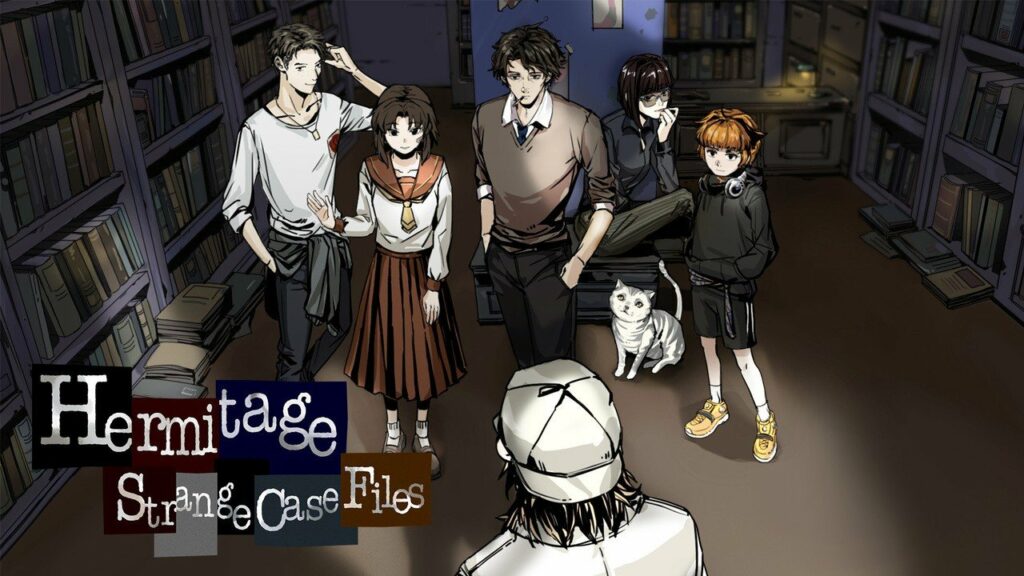
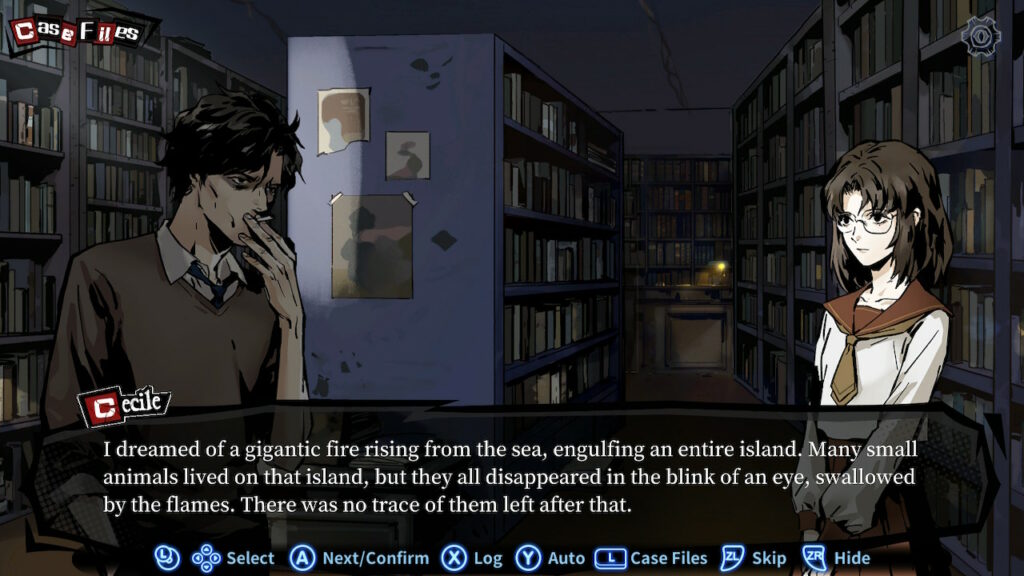
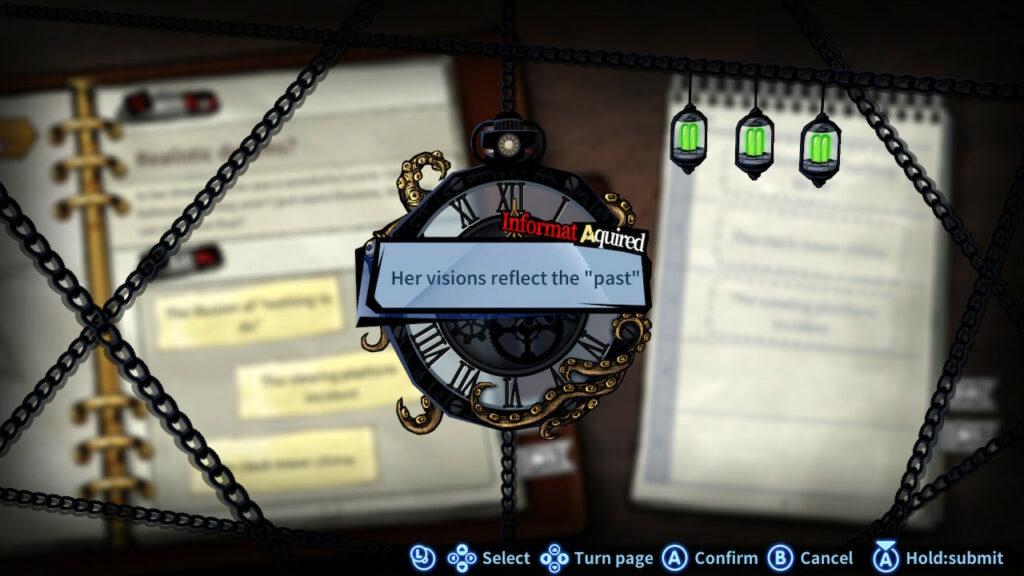
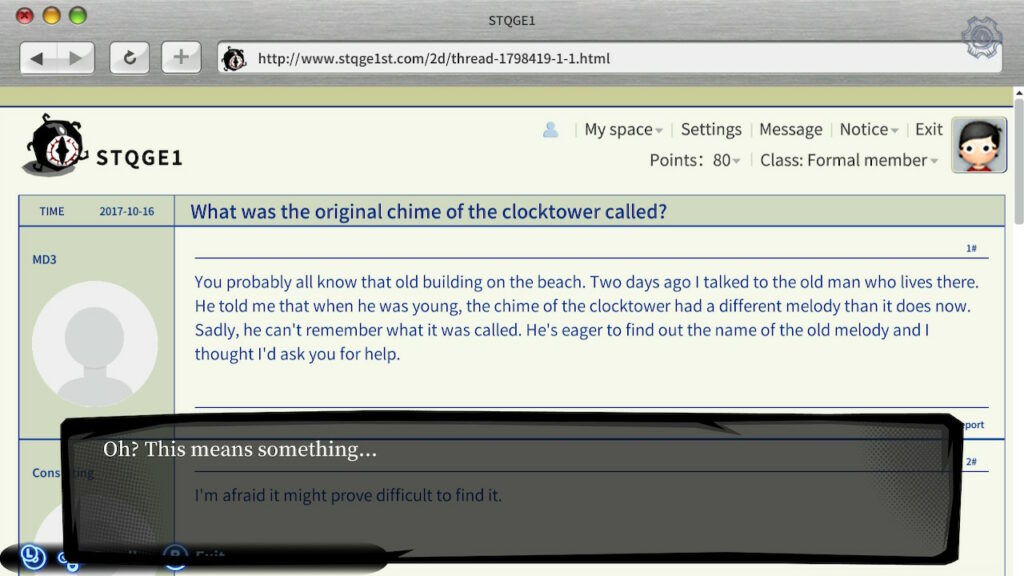
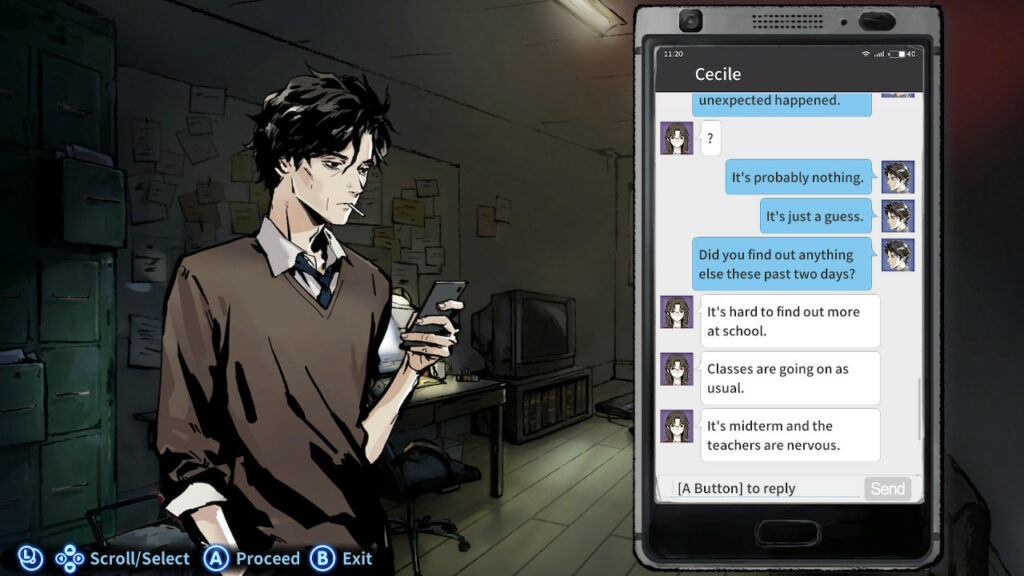
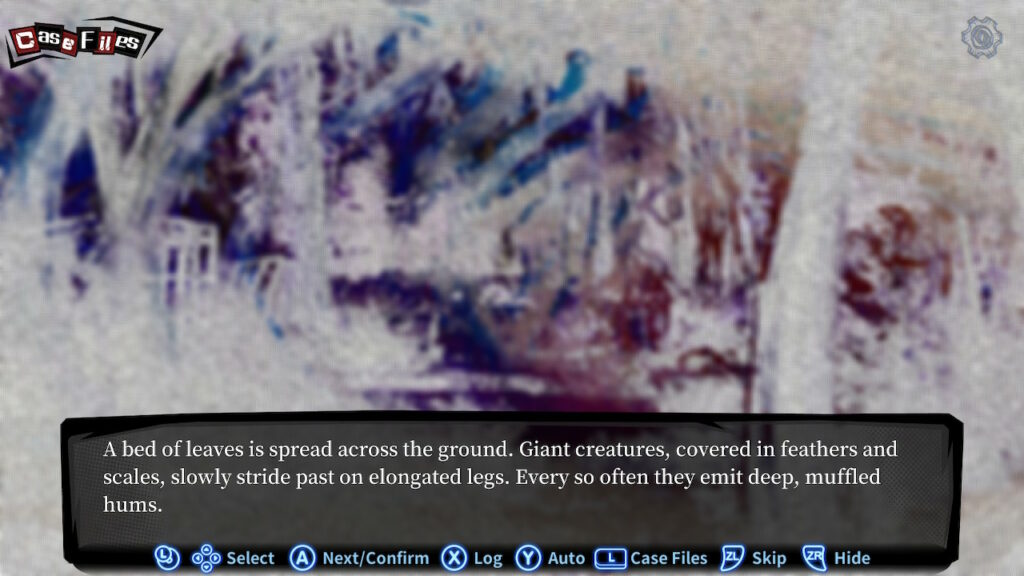



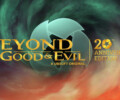
No Comments